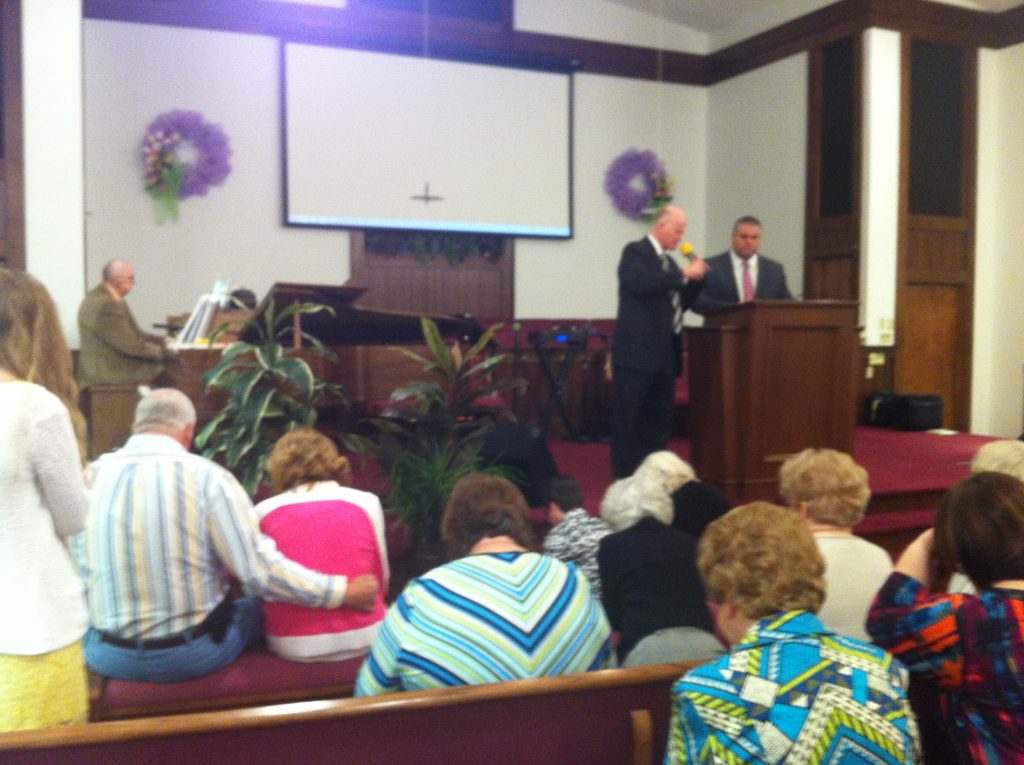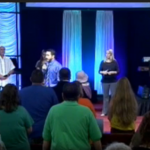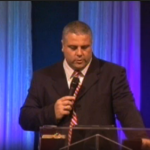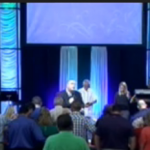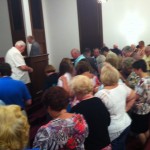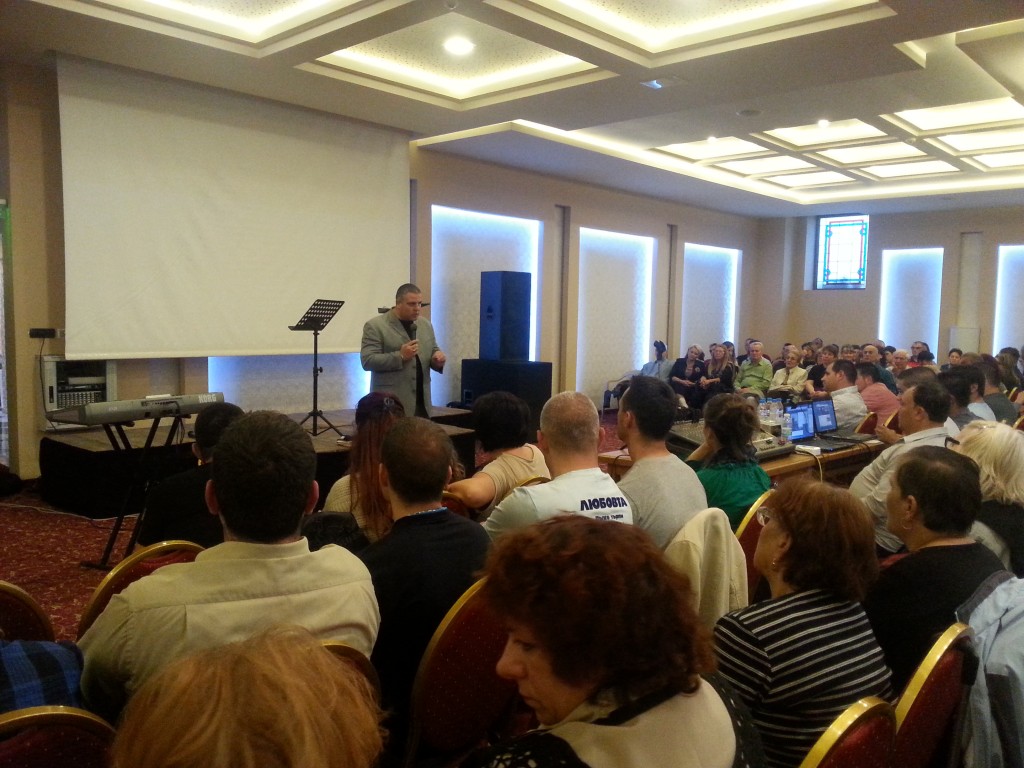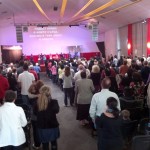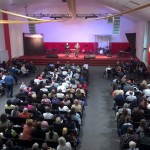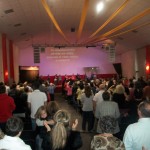Ministering at La France
Government Elections in Bulgaria (2005-2015)
 2005 Parliamentary Elections
2005 Parliamentary Elections
2006 Presidential Elections
2007 Municipal Elections
2009 Parliamentary Elections
2009 European Parliament elections
2011 Presidential Elections
2011 Local Elections
2013 Early parliamentary elections
2014 Early Parliamentary Elections
2015 Municipal Elections
Perry Stone: Invisible Warfare 101
Regional Church of God
La France District Revival
Sunday AM – Salvation: The Faith Once Delivered to the Saints
Sunday PM – Sanctification: Partakers in the Divine Nature
Monday – The Holy Ghost Baptism of Pentecost
Tuesday – Healing and Deliverance in the Atonement
Wednesday – Imminent Rapture of the Church
Pacifism as a Social Stand for Holiness among Early Bulgarian Pentecostals
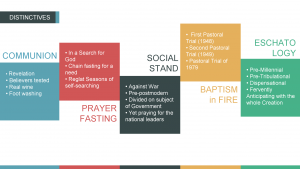 Historical and Doctrinal Formation of Holiness Teachings and Praxis among Bulgarian Pentecostals (Research presentation prepared for the Society of Pentecostal Studies, Seattle, 2013 – Lakeland, 2015, thesis in partial fulfillment of the degree of D. Phil., Trinity College)
Historical and Doctrinal Formation of Holiness Teachings and Praxis among Bulgarian Pentecostals (Research presentation prepared for the Society of Pentecostal Studies, Seattle, 2013 – Lakeland, 2015, thesis in partial fulfillment of the degree of D. Phil., Trinity College)
When Pentecostalism began to spread rapidly in Bulgaria in the 1920s, it was viewed hostile as by both Protestant and Orthodox traditions. Not fasting during lent and not sacrificing for the dead, not honoring Mary or the saints was all detrimental in the formation of the identity of Pentecostal churches in Bulgaria. Even insignificant things like not wearing a cross, or not making the sign of the cross and not lighting candles and incense were noticed and severely criticized by the surrounding culture. And of course not drinking alcohol in Bulgaria and the Pentecostal abstinence was met with enormous opposition from other religious groups. Along with that any benevolence, social involvement, spiritual upbringing of minors (including sport actives) was all condemned as harmful protestant propaganda.
But one specific evangelical stand could never be forgiven – the protestant pacifism in the form of conscientious objection against carrying arms. For the newly re-born Balkan state, in a place where war has been ongoing for centuries, to refusal to go to war was essentially to refuse to be a Bulgarian.
The pacifism of Bulgaria’s evangelicals was silent but powerful against both Hitler’s fascism and the militant atheism of the coming Communist Regime. Their deep Christian conviction simply did not allow them to kill, carry a weapon, imprison another human being, swear allegiance to the communist state or take orders from another authority but God. And for their stand, many ministers and believers paid a heavy price. About 40 ministers and members of the Bulgarian Church of God alone were sentenced to hard prison labor for noncompliance with the mandatory military service. Hundreds more known and unknown believers from other evangelical churches followed.
Scroll Signing Service in Sliven
 25 years after the Fall of the Berlin Wall, people in Eastern Europe are still haunted by the spirit of communism. The Regime robbed them not only from happiness and freedom, but from their deep human ability to even imagine a better and free world. For this very reason, we wrote the book “Looking over the Wall” as our prayer for a new prophetic re-imagination of the present reality. After laboring in Bulgaria for over 25 years, in 2014, we were thrilled to minister to churches and people that are dreaming and re-imagining God’s purpose for Bulgaria along with us. Join us in re-imagining imagination anew:
25 years after the Fall of the Berlin Wall, people in Eastern Europe are still haunted by the spirit of communism. The Regime robbed them not only from happiness and freedom, but from their deep human ability to even imagine a better and free world. For this very reason, we wrote the book “Looking over the Wall” as our prayer for a new prophetic re-imagination of the present reality. After laboring in Bulgaria for over 25 years, in 2014, we were thrilled to minister to churches and people that are dreaming and re-imagining God’s purpose for Bulgaria along with us. Join us in re-imagining imagination anew:
1. Purchase the book from Amazon
2. Read it with your church family
3. Help us pray for a renewal of a new prophetic re-imagination in the minds and hearts of the people in Bulgaria and Eastern Europe
Revival Harvest Campaign 2014 in Plovdiv
Bulgaria Holds Early Parliamentary Elections
Bulgaria will hold its early parliamentary elections on October 5, 2014. The elections come after much political tension, over a year of constant protests, and a deepening economic crisis expressed most recently in a collapse within the bank sector and a 10% increase of the prices of electricity.
The GERB right-centrists political party is expected to win, but if it will take enough seats in the Bulgarian parliament to form its own government is yet to be seen. Meanwhile, on its resent tour its representatives boldly proclaimed they will not seek coalition with any other political forces namely the leftist Socialist party and the ethnic fractions representing Turkish and other minorities in Bulgaria.
Contrary to this in a recent interview for Routers, GERB’s top leader expressed readiness to collaborate with various political forces including the socialists. Some political parties are also reaching for votes among Bulgarian evangelicals in order to gain momentum in the elections. Evangelicals are not represented by their own party in the current elections, although some Roma evangelical churches are said to have formed a small ethnic political party to reach a better representation.
HISTORY of EVENTS:


